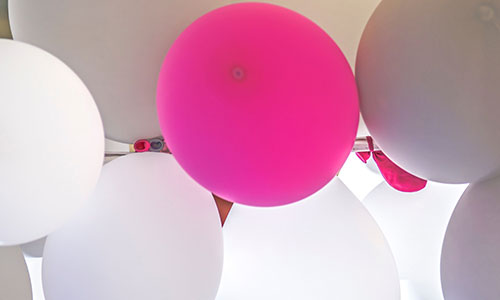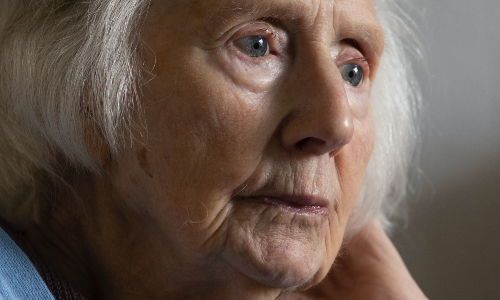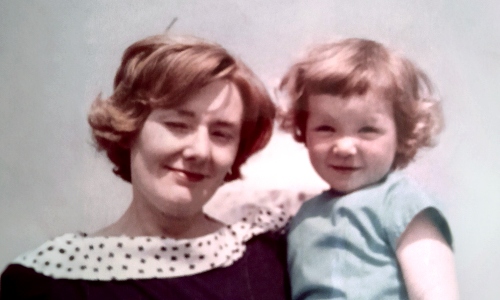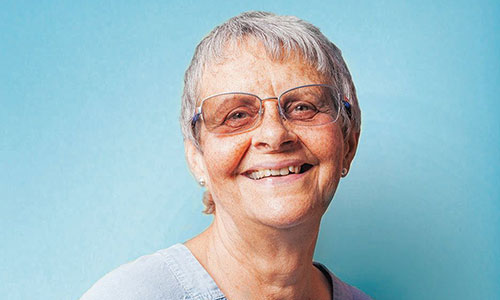The loss of a partner can be one of the most difficult things we face as we get older.
Val, 81, was married to her husband for more than half a century before his death. She explains how, with the support of Age UK, she has found the strength to continue.
“I thought that I would be the first to go, but it wasn’t to be,” says Val, a former orthopaedic nurse, who had been married to her husband for 56 years. “He used to joke with the nurses that you got less time for murder,” she remembers, smiling. “My whole investment in life was around him and my family.”
At a loss
After her husband’s death, Val struggled with her grief. “He was my rock; he was everything to me. When he went, I didn’t know what had hit me. I was very angry. I didn’t know how to go on living. I didn’t know what I was here for.”
My body shut down, my brain shut down. You don’t belong, you don’t know who you are... you don’t know how to go on.
Suddenly, everything to do with running the household fell to Val. “I’d never paid a bill. My husband did everything for me and when he went, I didn’t know who paid what, when, why or how,” she remembers.
“I was at a loss, a complete loss. How was I going to cope with this home? A dripping tap, a blocked drain, a lightbulb gone: what do you do? It sounds ridiculous, but had I known I would have made more provision and asked him to explain to me, ‘how do I do this?’”
On the periphery
The shock and sadness of being on her own caused Val to stop eating. She lost a considerable amount of weight over a short period of time. “People say to you, ‘You must take care of yourself, you’ve got to look after yourself,’” she recalls. “And you just think ‘How?’”
Eventually, Val collapsed. “My body shut down, my brain shut down,” she remembers. “And when that happens, [it’s as though] you’re in the worst weather conditions. You’re up on a hill, you’re in a complete snowstorm. You look down and you see that the village is all alight, with people going about their business. And you are on the periphery, outside of it all. You don’t belong, you don’t know who you are, you don’t know why you’re still going, and you don’t know how to go on.”
Finding strength
It was the memory of her husband and their life together that helped Val turn a corner. “I asked him once why he married me,” she says, laughing. “Big mistake, you don’t ask! And he said, ‘I loved you for your big happy face.’
“We had made a pact. That whoever went first, the other one did not look back and went forward. It’s not easy to do, but it can be done and, really, it must be done. And I do it in remembrance of a very kind and very loving husband.”
Age UK switched the light on. I'd been stumbling about in the dark.
Val turned to her GP and several charities, including Age UK, to help her. She called the Age UK Advice Line, where she was able to discuss the practical and emotional challenges she was facing.
“I sat down and I cried with thankfulness because there was somebody that understood where I was coming from,” she remembers. “I never expected it. I didn’t know that such people existed.”
Switching on the light
The Age UK advisor who spoke with Val arranged for her to receive a selection of information guides, covering everything from bereavement to money matters. She remembers the moment the guides arrived in the post. “It was the first time after my husband died that I burst out laughing,” she recalls. “The postman came staggering up the path with this great load of leaflets and he was so grateful to give them to me!”
Reading through the information she’d been sent was the gentle encouragement Val needed to start taking steps forward. “When you read [the guides] you think ‘Oh, someone understands’. They help you to get focused. And they don’t judge you,” she explains.
“Age UK switched the light on. I’d been stumbling about in the dark. [Grief] is a lonely, lonely place but when they step in and you hear that voice, and they just want to help you…oh, you’re grateful.”
As well as finding support elsewhere, Val looked inward to help her move forward. She discovered ways to fill the days – like paper crafting and playing classical music on her keyboard – that felt important and purposeful.
Val’s faith has also been a source of comfort. “I say the serenity prayer,” she explains. “You accept the things that can’t be changed, and you change the things that can. And then you ask for the wisdom to know the difference. My faith is very special and has got me through.”
Acceptance, she thinks, has been what has enabled her to find peace with her life as a widow. “You have to accept everything for what it is,” she says, firmly. “And then you start to make changes that you need, you want, you can cope with.”
I'm amazed at what I've come through... There is a light at the end of the tunnel.
Walking together
Val’s optimism is inspiring, but she admits she works hard to maintain her positive outlook on life since her husband’s death. “I was born with a cheerful nature and I’m grateful for that. But it was tested and tried to its limits. Coping with life on my own - it’s the most difficult thing I’ve ever had to do in my life. I’ve faced bereavements – parents, friends, relatives – but when you lose your soul mate, oh boy. That is something else.”
Val has sought out the company of other people who’ve lost partners, and together they support each other. “In our road, there are five of us all bereaved,” she says. “We all deal with the bereavement in different ways, and we all draw strength from each other. You walk beside [someone who’s grieving]. You take their hands, and you walk with them.”
We asked Val what she would say to someone who’s recently lost a partner. While she was at pains to make clear that she can only speak about what’s worked for her, she had some words of wisdom to share: “The human spirit is amazing. I am amazed at what I’ve come through. I’m not boasting, but there’s that human spirit there – use it. You’re on a journey and the going is not good to start with. But we are all worthy. Every single person matters. You matter.
“All I want to say is: There is a light at the end of the tunnel.”
*Image used does not represent storyteller
Coping with bereavement
Dealing with the death of a loved one can be one of the hardest things we ever go through. But there's support available to help you process your feelings and look after yourself.





